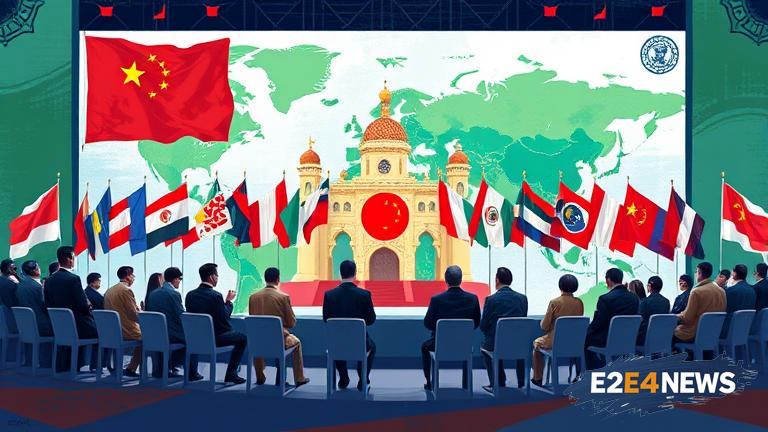The Shanghai Cooperation Organization (SCO) summit, held in Tianjin, China, has brought together leaders from across the globe, including Chinese President Xi Jinping, Russian President Vladimir Putin, and Indian Prime Minister Narendra Modi. The summit aims to promote regional cooperation, stability, and security, while also showcasing the unity and strength of the global south. The SCO, founded in 2001, has grown to become one of the largest and most influential regional organizations in the world, with member states accounting for over 40% of the global population and 20% of global GDP. The summit has provided a platform for leaders to discuss key issues, including trade, investment, and security, and to promote people-to-people exchanges and cultural cooperation. The global south, comprising countries in Asia, Africa, and Latin America, has been increasingly asserting its presence on the world stage, and the SCO summit is seen as a key moment in this process. The summit has also highlighted the growing importance of China, India, and Russia as major players in global affairs, and their commitment to promoting south-south cooperation and multilateralism. The leaders have emphasized the need for greater cooperation and coordination on issues such as counter-terrorism, cybersecurity, and climate change, and have pledged to work together to promote sustainable development and reduce poverty and inequality. The SCO summit has also provided an opportunity for leaders to discuss regional hotspots, including the situation in Afghanistan and the Middle East, and to promote peace and stability in these regions. The summit has been seen as a success, with leaders agreeing to deepen cooperation and strengthen ties, and to work together to address common challenges and promote shared interests. The global south has been increasingly seeking to promote its own interests and agendas, and the SCO summit has been seen as a key moment in this process. The summit has also highlighted the growing importance of regional organizations and multilateralism, and the need for greater cooperation and coordination on global issues. The leaders have emphasized the need for a more just and equitable world order, and have pledged to work together to promote peace, stability, and prosperity. The SCO summit has been seen as a major step forward in promoting global south unity and cooperation, and has set the stage for further cooperation and collaboration in the future. The summit has also provided an opportunity for leaders to promote their own national interests and agendas, and to strengthen ties with other member states. The global south has been increasingly seeking to promote its own economic and trade interests, and the SCO summit has been seen as a key moment in this process. The summit has highlighted the growing importance of China, India, and Russia as major economic players, and their commitment to promoting south-south cooperation and trade. The leaders have emphasized the need for greater cooperation and coordination on issues such as trade facilitation, investment, and economic development, and have pledged to work together to promote sustainable and inclusive growth. The SCO summit has been seen as a major success, with leaders agreeing to deepen cooperation and strengthen ties, and to work together to address common challenges and promote shared interests. The global south has been increasingly seeking to promote its own cultural and people-to-people exchanges, and the SCO summit has been seen as a key moment in this process. The summit has highlighted the growing importance of cultural cooperation and exchange, and the need for greater understanding and cooperation between different cultures and civilizations. The leaders have emphasized the need for greater cooperation and coordination on issues such as education, science and technology, and innovation, and have pledged to work together to promote mutual understanding and respect. The SCO summit has been seen as a major step forward in promoting global south unity and cooperation, and has set the stage for further cooperation and collaboration in the future.
